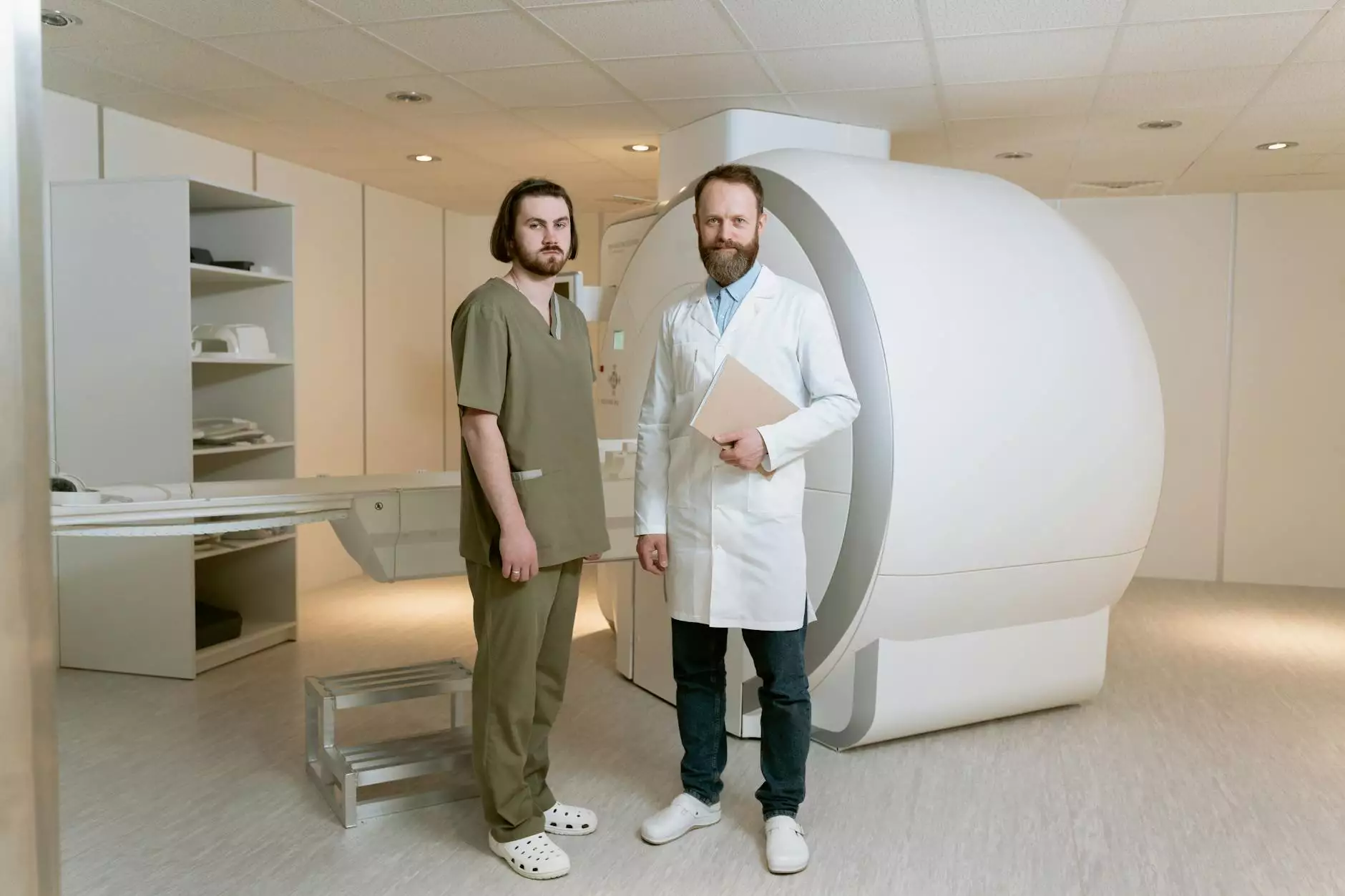The Vital Role of MRI Service Engineers in Modern Healthcare

In the rapidly evolving field of healthcare, MRI service engineers play a pivotal role in ensuring that magnetic resonance imaging (MRI) systems function optimally. This article delves into the multifaceted responsibilities of MRI service engineers, showcasing their indispensable contributions to medical centers, diagnostic services, and the overarching health and medical field. Understanding their roles helps highlight the importance of these professionals in delivering quality healthcare services.
Understanding MRI Technology
Before diving into the vital functions of MRI service engineers, it's essential to have a foundational understanding of what MRI technology entails. MRI is a diagnostic imaging technique that uses strong magnetic fields and radio waves to generate detailed images of organs and tissues within the body. It is a non-invasive method that aids in diagnosing various medical conditions, making it an invaluable tool in modern medicine.
The Role of MRI Service Engineers
MRI service engineers are specialized professionals responsible for maintaining, repairing, and optimizing MRI equipment. Their roles encompass a wide range of tasks, including:
- Installation of MRI Equipment: Service engineers are involved in the installation of new MRI systems. They ensure that these complex machines are set up correctly and calibrated for optimal performance.
- Routine Maintenance and Calibration: Regular maintenance checks are crucial for the longevity and efficiency of MRI machines. Engineers conduct preventative maintenance to avoid unexpected breakdowns and ensure that the equipment produces accurate diagnostic images.
- Repairs and Troubleshooting: When MRI machines malfunction, service engineers are the first line of defense. They diagnose issues, replace defective parts, and restore machines to full operation.
- Training Healthcare Staff: MRI service engineers often provide training to medical staff on the proper operation of MRI machinery, ensuring that technicians are well-versed in safety protocols and operational procedures.
- Staying Updated on Technological Advances: As MRI technology constantly evolves, service engineers must keep abreast of new developments, software updates, and best practices in the industry.
The Importance of MRI Service Engineers in Healthcare
The contributions of MRI service engineers extend beyond mere maintenance; they are crucial to the healthcare ecosystem. Here’s how they impact patient care:
1. Ensuring Patient Safety
Safety is a primary concern in the healthcare industry, especially when it involves advanced diagnostic machinery like MRI machines. MRI service engineers are responsible for ensuring that:
- The machines operate within safe parameters to avoid exposing patients to unnecessary risks.
- The equipment is free from defects that could compromise image quality or patient safety.
- Regular inspections and adherence to manufacturer guidelines are followed to maintain safety standards.
The meticulous work of these engineers directly contributes to creating a safe environment for patients undergoing MRI scans.
2. Maximizing Equipment Lifespan
The investment in MRI machines is substantial, making their longevity paramount. MRI service engineers employ various strategies to maximize the lifespan of these machines:
- Conducting detailed regular inspections to identify potential issues before they escalate.
- Implementing best practices in operation and maintenance.
- Calibrating equipment to ensure optimal performance and minimize wear and tear.
By extending the life of MRI machines, healthcare facilities can reduce costs significantly, allowing more funds to be allocated towards patient care initiatives.
3. Enhancing Diagnostic Accuracy
MRI service engineers ensure that MRI machines produce high-quality images, which are critical for accurate diagnoses. Their work influences:
- The calibration of imaging protocols to meet specific diagnostic needs.
- The performance of engineering upgrades to improve imaging quality.
- The resolution of software-related issues that could distort or degrade images.
Through their diligence, engineers enhance the diagnostic capabilities of healthcare providers, leading to better patient outcomes.
4. Supporting Healthcare Facilities
Healthcare facilities rely heavily on the expertise of MRI service engineers in various ways:
- Reducing downtime for MRI machines through timely maintenance and repairs, ensuring that diagnostic services remain available.
- Improving workflow efficiency in imaging departments by resolving technical issues swiftly.
- Collaboration with IT and clinical staff to ensure seamless integration of MRI machines with hospital information systems.
Such support not only improves operational efficiency but also enhances the overall patient experience.
Training and Qualifications of MRI Service Engineers
To be successful in the role of an MRI service engineer, individuals typically have a background in engineering or biomedical technology. Most importantly, they receive specialized training in the following areas:
- Electrical and Electronics Engineering: A solid foundation in these fields is often essential given the complexity of MRI systems.
- Mechanical Engineering: Understanding mechanical systems helps engineers identify and fix hardware issues.
- Healthcare Protocol Training: Familiarity with healthcare regulations, safety protocols, and best practices for patient care is critical.
- Continuous Education: Engineers must engage in ongoing professional development to stay current with advancements in MRI technology.
By maintaining this educational trajectory, MRI service engineers effectively contribute to the field’s technological and operational advancements.
Future of MRI Service Engineers in the Digital Age
The healthcare industry is undergoing a significant transformation with the advent of digital technologies and artificial intelligence (AI). For MRI service engineers, this digital shift presents both challenges and opportunities:
Embracing Innovation
Engineers are increasingly required to adapt to new technologies such as:
- AI-driven diagnostic tools: Integrating AI with MRI systems can enhance the accuracy of image analysis and streamline workflows.
- Remote Monitoring: Cloud-based solutions allow for real-time monitoring of MRI machine performance, enabling preventative measures even before issues arise.
- Advanced Software Systems: Engineers will need to support complex software upgrades that come with new MRI machinery.
Continuous Learning and Adaptation
Given the rapid pace of technological change, continuous learning becomes imperative. MRI service engineers must:
- Attend workshops and training sessions focused on new technologies and systems.
- Network with peers and industry professionals to share insights and advancements.
- Stay informed about changes in healthcare regulations and standards that impact their work.
By committing to lifelong learning, MRI service engineers can remain invaluable assets to healthcare organizations.
Conclusion: The Unsung Heroes of Healthcare
In conclusion, MRI service engineers are indeed the unsung heroes of healthcare, ensuring that MRI machines operate safely, efficiently, and effectively. Their role is crucial in maintaining the integrity of diagnostic services that are vital for patient care. As the healthcare landscape continues to evolve with technological advancements, the responsibilities and importance of MRI service engineers will only grow. Their expertise not only supports healthcare facilities but ultimately enhances diagnostic accuracy and improves patient outcomes, cementing their critical place in modern medicine.
As organizations like Echo Magnet Services continue to prioritize the recruitment and training of skilled MRI service engineers, the future of diagnostic imaging looks brighter than ever.







